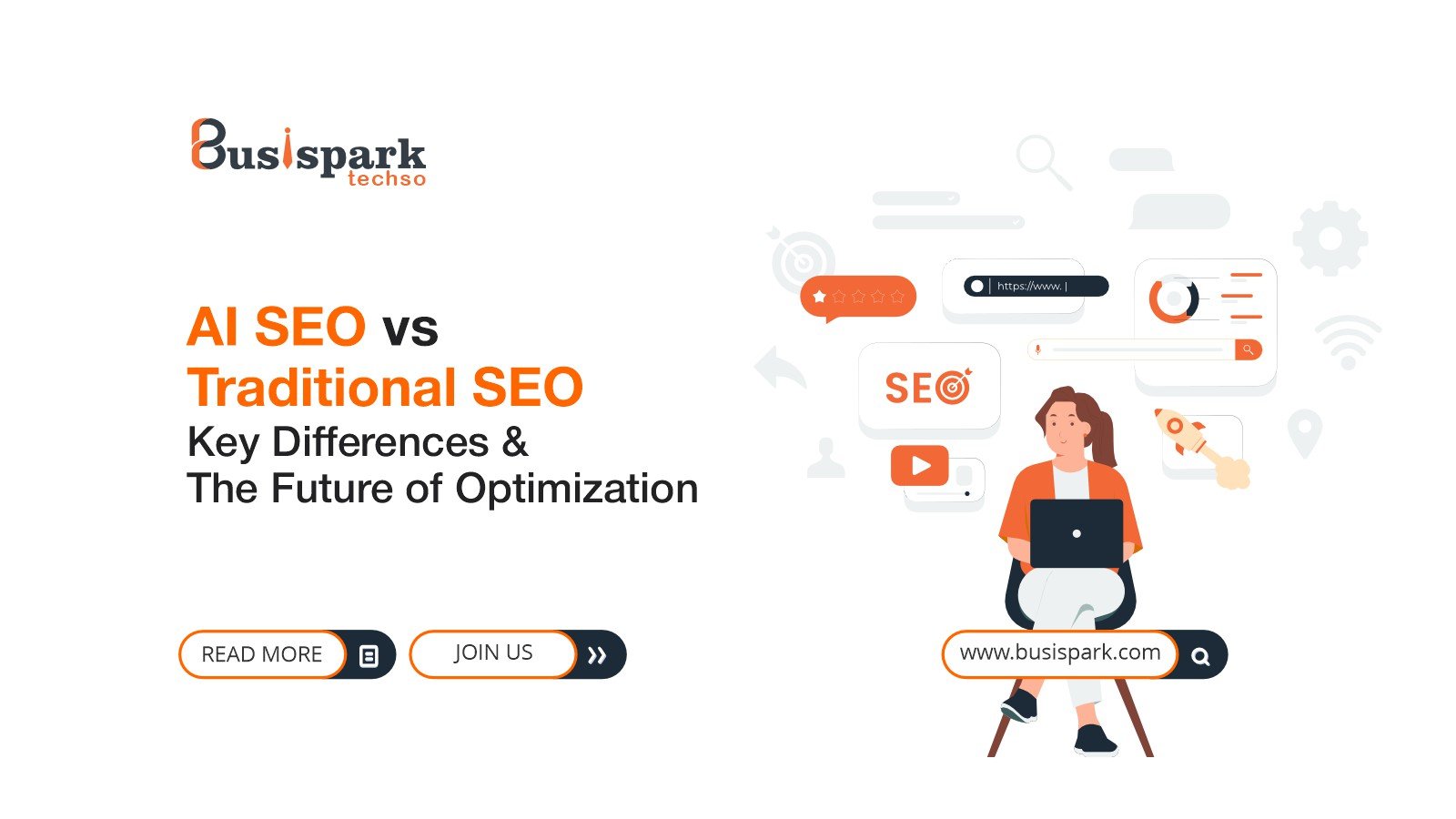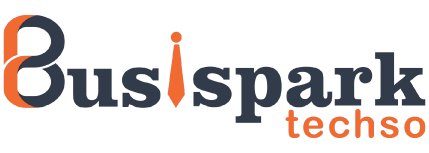
AI SEO vs. Traditional SEO: Key Differences & The Future of Optimization
Search engine optimization has evolved a lot over the years. Today, businesses choose between AI SEO and traditional SEO to boost rankings.
Both approaches aim to improve online visibility but follow different paths. In this blog, we’ll compare AI SEO and traditional SEO in detail.
You’ll learn how each method works, their benefits, and what the future of SEO holds.
What Is Traditional SEO?
Traditional SEO uses manual strategies and tools to optimize a website for search engines. It focuses on keyword research, on-page optimization, backlink building, and technical audits.
SEO professionals study trends and search intent manually. They adjust content, URLs, meta tags, and site structures to improve rankings. Most tasks in traditional SEO rely on human analysis, trial, and experience. While effective, it can be time-consuming and labor-intensive.
What Is AI SEO?
AI SEO uses artificial intelligence, machine learning, and SEO automation tools to improve a website’s performance. It collects, analyzes, and processes large data sets much faster than humans.
AI in SEO can predict search trends, optimize content automatically, and suggest improvements. AI-based tools also handle tasks like keyword clustering, competitor analysis, and content scoring.
This modern approach reduces manual effort and delivers quicker, more data-driven optimization results.
Key Differences Between AI SEO and Traditional SEO
Let’s explore the major differences between AI SEO and traditional SEO in a simple comparison.
1. Process Speed and Efficiency
Traditional SEO involves manual keyword research, page audits, and link-building strategies. This takes time and demands regular updates.
In contrast, AI SEO automates repetitive tasks. It analyzes data, trends, and keywords in minutes, saving hours of work.
SEO automation tools powered by AI deliver faster insights and smarter recommendations.
2. Data Analysis and Decision Making
Traditional SEO relies on expert judgment, past experiences, and limited data samples. While accurate, it may miss hidden opportunities.
AI SEO processes vast amounts of data, spotting trends no human can detect. It uses machine learning algorithms to predict search behaviors.
This makes AI in SEO a smarter, data-driven strategy for long-term growth.
3. Content Creation and Optimization
In traditional SEO, content creators manually optimize pages for keywords, headings, and readability. This process requires time and constant SEO knowledge.
AI SEO tools can generate content outlines, suggest keywords, and even write SEO-friendly drafts. These tools improve speed and consistency.
They also help optimize existing content automatically based on SEO scoring systems.
4. Adaptability to Algorithm Updates
Search engines regularly update algorithms, impacting website rankings. Traditional SEO reacts to these changes through expert reviews and audits.
AI SEO detects ranking changes instantly. It can adjust SEO strategies in real-time, minimizing traffic losses.
This quick adaptability makes AI in SEO ideal for competitive industries.
5. Cost and Resource Management
Traditional SEO requires hiring SEO specialists, writers, and analysts. It’s resource-heavy and may not suit small businesses with limited budgets.
AI SEO uses automated tools that reduce the need for large SEO teams. This lowers operational costs while maintaining high optimization quality.
SEO automation makes AI-based solutions more budget-friendly in the long run.
The Future of SEO: AI Leading the Way
The future of SEO is shifting towards automation, personalization, and AI-driven optimization. AI tools will handle keyword research, content suggestions, and link analysis with ease.
Voice search, video SEO, and visual search will become more AI-dependent. AI-based predictive analytics will help brands target users before they search.
While traditional SEO skills remain valuable, AI will handle most technical and data-heavy tasks.
Will AI SEO Replace Traditional SEO?
AI SEO won’t fully replace traditional SEO, but it will transform how optimization happens. Human creativity, storytelling, and brand strategy will always need personal touch.
However, technical audits, data processing, and trend analysis will move to SEO automation systems. Smart brands will combine AI tools with expert guidance for the best results. The smartest marketers will master both approaches for future-proof SEO success.
FAQs About AI SEO vs. Traditional SEO
Q1: What is AI SEO?
A: AI SEO uses artificial intelligence and automation tools to optimize websites and improve search engine rankings.
Q2: How is traditional SEO different from AI SEO?
A: Traditional SEO relies on manual methods, while AI SEO uses automation and data-driven insights for optimization.
Q3: What tasks can AI SEO automate?
A: AI in SEO automates keyword research, content suggestions, SEO audits, link analysis, and competitor tracking.
Q4: Is AI SEO more effective than traditional SEO?
A: AI SEO is faster and data-driven, but a mix of AI and human strategy delivers the best results.
Q5: What is the future of SEO?
A: The future of SEO involves AI-powered tools, automation, voice search, and hyper-personalized user experiences.
Q6: Can small businesses use AI SEO?
A: Yes, many affordable AI SEO tools are available, making it easy for small businesses to automate basic SEO tasks.
Q7: Should I stop using traditional SEO?
A: No, combine AI SEO tools with traditional SEO strategies for a balanced, effective optimization plan.
Conclusion
AI SEO and traditional SEO serve the same goal but follow different paths. While traditional SEO relies on human expertise, AI SEO uses automation and advanced data analysis.
The future of SEO will blend both, using AI tools for technical tasks and human skills for creative strategies. Smart businesses should adopt SEO automation today to stay competitive.
By combining human expertise and AI in SEO, you’ll build a powerful, future-ready optimization strategy.

